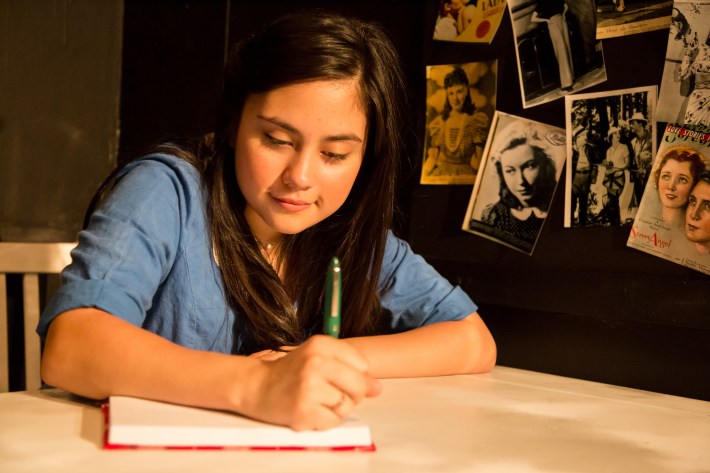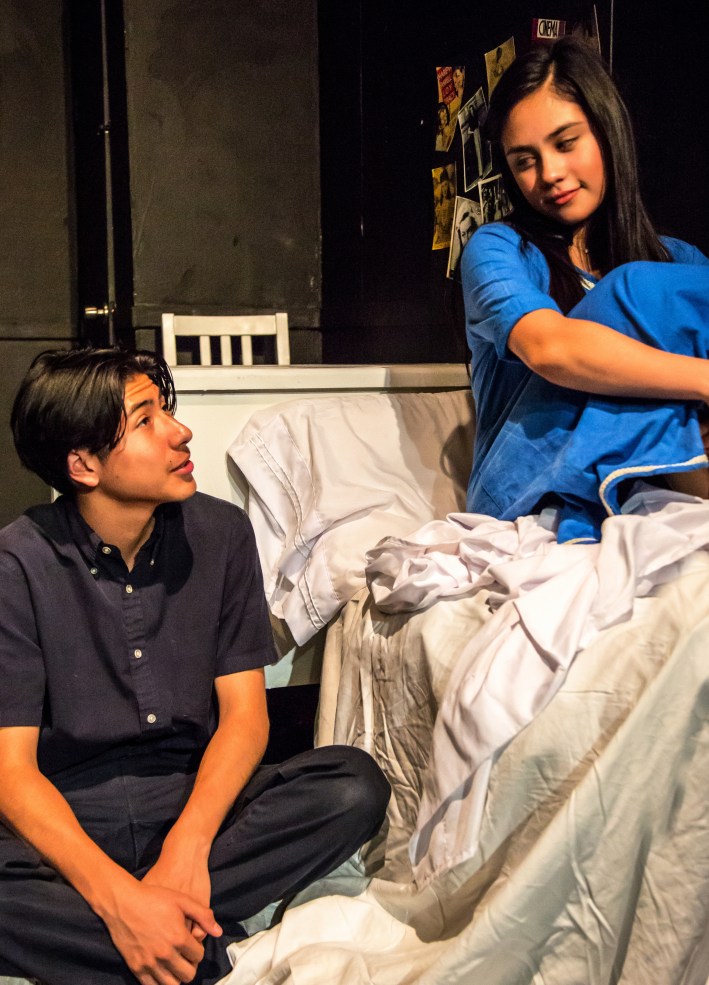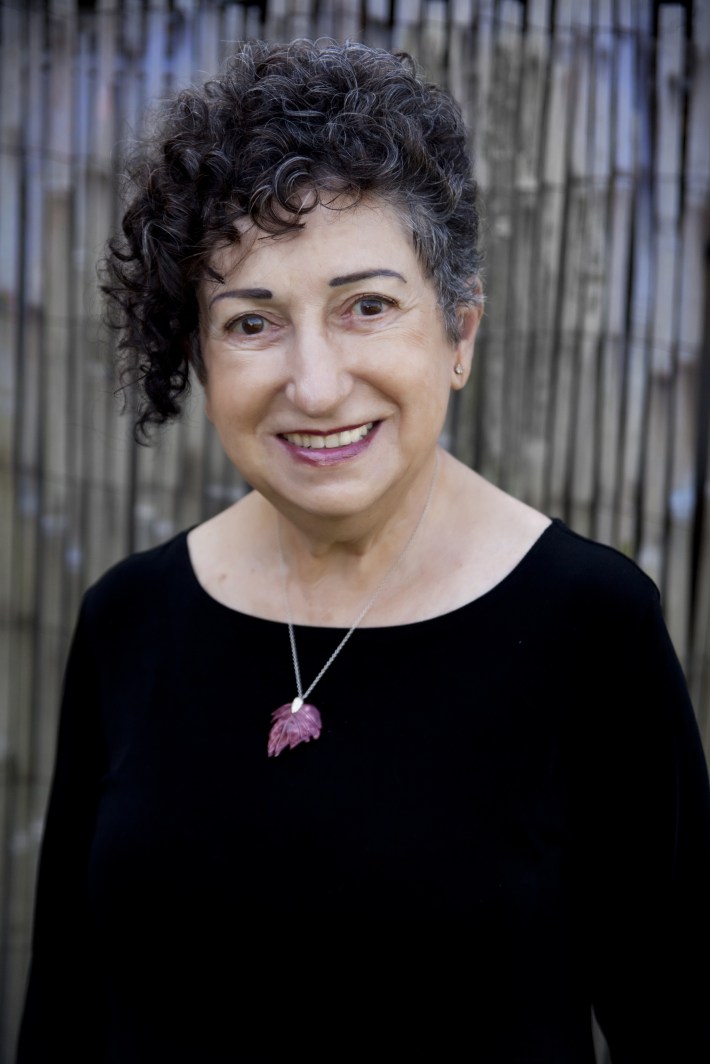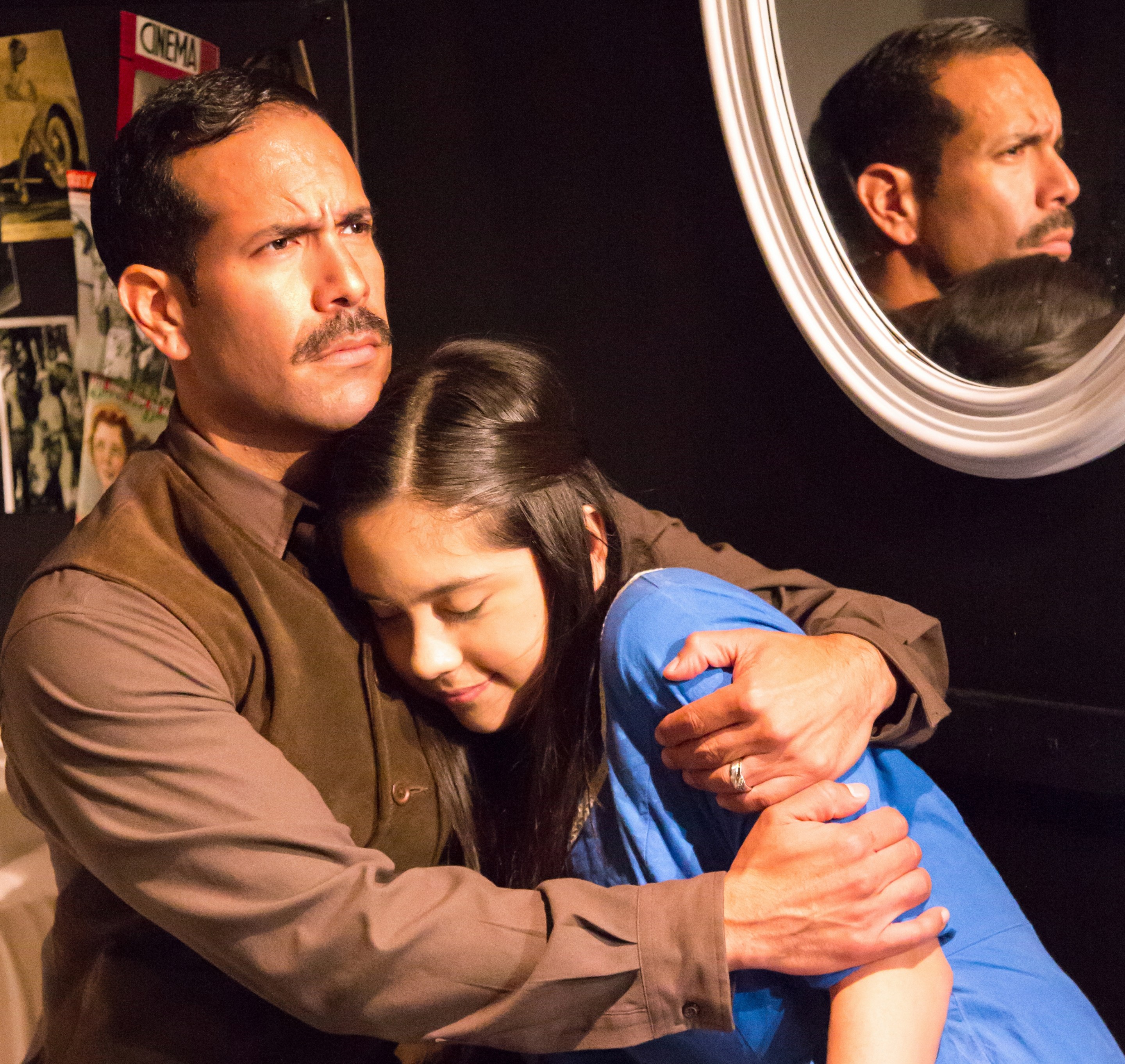[dropcap size=big]L[/dropcap]ast spring, when writer and producer Stan Zimmerman first got the idea to stage an almost entirely Latinx production of “The Diary of Anne Frank,” no one was comparing the inhumane treatment of migrants at the border to the Holocaust.
This was before it was made publicly known that the Trump administration had instituted a “zero-tolerance” family separation policy with no explicit intention of reunifying families—and that the policy had already been piloted the year prior. It was before the administration admitted they lost thousands of children in the system and laid the groundwork for migrant kids to be adopted after their parents were deported. And it was before horrifying stories and images of children in cages were widely circulated, prompting Rep. Alexandria Ocasio-Cortez to liken border detention centers to concentration camps.
But Zimmerman, who’s worked on “Gilmore Girls” and “Roseanne” as well as in theater, could see the parallels. He came across a CNN story about a Jewish woman in California providing a safe house for a Latina mother and her two teenage daughters after their father was deported.
“That’s what made me think, ‘We are literally living in the times of Anne Frank,’” Zimmerman says. He then thought of the play. Written in 1955 by Frances Goodrich and Albert Hackett, The Diary of Anne Frank was a dramatization of The Diary of a Young Girl, the book of Anne Frank’s writings from her time in hiding. Another version of the play adapted by Wendy Kesselman and starring Natalie Portman as Anne had premiered in 1997. Zimmerman wondered: What would happen if he staged the play today and “cast everyone in the attic with Latinx actors?”
He ran the idea by some friends, who told him this was not just something he had to do, but something he had to do now. He rounded up casting director Julie Gale and producers Anne Kathryn Parma and Tracey Rooney and put together a production “on a nickel and a dime” that premiered last September at the Dorie Theatre at The Complex Hollywood. This week, Zimmerman and the company bring their revival to the Weinberg Auditorium at Temple Emanuel of Beverly Hills for three performances, one of which features a post-show talkback with Holocaust survivor Gabriella Karin. It will then make its first international appearance at the Chutzpah! Festival in Vancouver in early November.
If early critics were mistaking Nazis for ICE agents, that speaks to the unsettling similarities between then and now.
The premiere’s reception in 2018 was bigger than Zimmerman predicted. His 50-seat, black box theater show with simple costuming and set design sold out both runs in fall 2018 and early 2019. It collected celebrity endorsements from George Takei and Star Trek: Discovery’s Wilson Cruz, who joins the producing team for the upcoming engagements. But its journey to the stage had not been without controversy. Before the show opened, word (falsely) circulated on Breitbart and Fox News that Zimmerman had changed the Nazis in the play to ICE agents. Though the production is a word-for-word staging of Kesselman’s work, the director had to appear on CNN to clear up the misconceptions. And while Zimmerman himself is Jewish (he describes himself as having been “a good Sunday school student,”) even some of his Jewish friends had been wary of what he was trying to pull off.
But Zimmerman and his cast believed in his vision. And as Tasha Dixon, who plays Anne Frank’s mother, Edith, points out, if early critics were mistaking Nazis for ICE agents, that speaks to the unsettling similarities between then and now. Dixon is a self-described “artivist” who took the part to make a statement about this administration’s immigration policies. She also has a close personal connection: Her mother fled Cuba as a child when Castro came into power.
“I see a lot of my mom in Edith Frank,” says Dixon, who experienced night terrors as she immersed herself in the role. “Having to start over, being strong, being misunderstood—moms are so misunderstood. Going into the depths of what Edith did for her daughters—even after they were captured and separated—made my heart go out to what it is to be a mom, and the sacrifices my mom made for me to have a better life.”

It might surprise those who haven’t seen the play or read the book just how normal a life the Franks tried to live despite their circumstances. Edith continues to mother her daughters; Anne remains a teenage girl, full of the accompanying hopes, dreams, and complaints. That ordinariness was a surprise to Dixon, who wondered why the Franks put on and took off their shoes in the attic. There seemed to be no reason for it if they weren’t actually going anywhere. She posed the question to her high school theater teacher, who is Jewish. “There’s a reason,” her teacher told her, “and the reason is to feel human.”
This is part of the show’s purpose: to remind audiences of the humanity of people deemed “other.” The cast and crew hope to inspire compassion, to encourage people to see from another perspective, and to educate about the past and present. Teaching is a crucial piece of this revival—in no small part because Genesis Ochoa, who plays Anne Frank, had never read “The Diary of a Young Girl” before she got the script to audition.
At one of the upcoming Beverly Hills performances, audiences can still hear from Gabriella Karin, who grew up in Slovakia and went into hiding with her parents at age 13—just like Anne.
Unlike in many districts across the country, the book wasn’t required or assigned reading in her Los Angeles school district. In rehearsals, Ochoa found herself in an immersive history lesson. She was 15 when she started working on the play, just two years older than Anne when the Franks went into hiding. Their proximity in age made the role—Ochoa’s first in the theater—both easy and difficult to relate to.
“Before the show,” says Ochoa, “I knew the breakdown of what was going to happen, I knew what scene was coming up next. But you get so involved in becoming that character, that at the end [when the family is found and separated], it was gut-wrenching for me every single night.”

With each performance, Ochoa says, she incorporated new insights she’d gleaned from the survivors who spoke in the talkbacks. Sadly, the production lost two of its speakers in the year since it premiered, so Zimmerman began setting out empty chairs for them, as “they are still with us as part of our company,” he says.
At one of the upcoming Beverly Hills performances, audiences can still hear from Gabriella Karin, who grew up in Slovakia and went into hiding with her parents at age 13—just like Anne. Karin and her parents survived the war, and she grew up to be a fashion designer and later, a sculptor. Some of her work remembers the atrocities of the Holocaust and pays tribute to the victims and survivors, and has been featured in galleries and museums including the Los Angeles Museum of the Holocaust. She also speaks at temples and high schools, in part to keep these stories alive for future generations.
“We don’t have to love everybody, but respect every person on this earth. We all have the right to be here.”
“At first, I did not realize how much influence [my story] has on young people,” Karin says. “But I saw how they reacted. I’m trying to make them think how important they are in building a better future for the world.”
In the same spirit, the producers have reached out to local schools to encourage teachers to bring their students to the upcoming daytime performances. Dixon says that for many of the young people who attended earlier shows, it was their first time seeing a play and that for Latinx students, the production was even more special.
“Being able to see reflections of themselves in art, being strong leaders—the characters in the play all have their strengths—is a huge, subconscious kind of empowerment,” she says.
The producers are eager to take that mission on the road, though there are still some logistics to work out. For one, the intimate staging at the 50-seat Dorie Theatre helped capture the claustrophobia and fear that shaped the Franks’ years in hiding. That will have to be reconceived for the 300-seat theater in Vancouver, the show’s next destination. Funding also remains a challenge, especially if the producers want to continue providing students with discounted tickets. With Cruz’s help, the team launched an Indiegogo campaign in the hopes of taking the show to schools and cities around the U.S.—including Washington, D.C., so advocates like Rep. Ocasio-Cortez can attend. There’s also a powerful statement in staging the play “in the backyards of our politicians,” says Zimmerman, “because they are doing nothing about this.”

Until this adaptation of Anne Frank finds more audiences across the U.S. and beyond, the production can count among its accomplishments sparking discussion and inspiring young people. Playing Anne, says Ochoa, “has changed me for the better. It’s thanks to Stan, it’s thanks to everybody in the play, and it’s especially thanks to Anne. Because even though she isn’t alive, I feel like she’s there with me, spiritually guiding me.”
If there’s one thing Ochoa asks of audiences, it’s to arrive with an open mind. Hopefully, with the help of the artists on stage, that open-mindedness will breed compassion. Adds Karin, “We don’t have to love everybody, but respect every person on this earth. We all have the right to be here.”
Tickets for the three showtimes in Los Angeles coming up on Thursday, October 24th and Friday, October 25th are available here.







